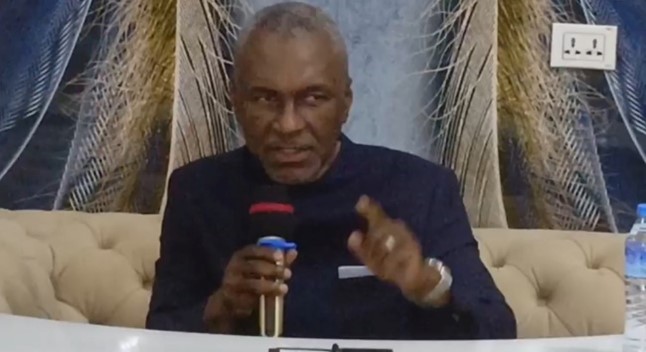Alexander B. Cummings, leader of Liberia’s Alternative National Congress (ANC), delivered a pointed critique of the Boakai administration, highlighting perceived shortcomings and offering his expertise to steer the nation towards progress. Cummings’s assessment, delivered in his first media appearance of 2025, centered on economic concerns, foreign policy, and the pervasive issue of corruption. He questioned the government’s efficacy in improving the lives of Liberians, specifically referencing unemployment and cost of living, and advocating for a robust economic agenda focused on job creation and sustainable growth. He also criticized specific initiatives, symbolized by the “yellow buses,” which seemingly represent poorly executed policies that have failed to yield tangible benefits. This critique underscores a broader concern about the administration’s ability to translate policy into effective action and deliver on promises made to the Liberian people.
Cummings emphasized the need for a foreign policy anchored in Liberia’s national interests and the well-being of its citizens. He argued that Liberia’s foreign engagements should prioritize benefits for its people, whether through economic partnerships, security cooperation, or other forms of international collaboration. Expressing concern about Liberia’s perceived reliance on foreign aid, particularly from the United States, Cummings called for a shift in the nation’s image. He envisioned Liberia transitioning from a perceived “beggar” nation to one that actively attracts investment and fosters economic self-reliance. This rebranding, he argued, is crucial for attracting foreign capital and establishing Liberia as a viable partner in international trade and development.
The ANC leader expressed significant concern about the potential impact of a hypothetical suspension of US aid, underscoring Liberia’s dependence on external assistance while simultaneously advocating for greater economic independence. This seemingly contradictory position highlights the difficult balancing act faced by developing nations: navigating the immediate need for aid while striving for long-term self-sufficiency. He stressed the importance of transforming Liberia into a nation “open for business,” showcasing its potential for growth and attracting investment, a move he believes would be a game-changer for the country’s economic future. This shift in focus, he believes, would not only reduce Liberia’s reliance on aid but also bolster its standing on the global stage.
Cummings also addressed the persistent challenge of corruption within the Liberian government, arguing that the administration had effectively “scored an own goal” in its efforts to combat the issue. He proposed a multi-pronged approach to tackling corruption, beginning with strengthening key institutions like the judiciary to ensure accountability for those who embezzle public funds. He went beyond simply suspending corrupt officials, emphasizing the importance of prosecution to deter future misconduct and establish a culture of consequences. This reflects a belief that true change requires not only public condemnation of corruption but also robust legal action to bring perpetrators to justice.
Furthermore, Cummings advocated for improving the compensation of civil servants. He posited that fair wages would disincentivize corrupt practices driven by financial need. He believes that adequately remunerated civil servants would be less susceptible to bribery or other illicit activities often associated with low pay. This, he argues, is a preventative measure that addresses the root causes of corruption within the public sector. In addition to these structural and policy reforms, Cummings also championed the integration of technology to enhance transparency and accountability within governmental processes. He proposed leveraging digital systems to track financial transactions and streamline bureaucratic procedures, thereby reducing opportunities for corruption.
In summary, Cummings’s critique of the Boakai administration covered a broad spectrum of issues, from economic performance and foreign policy to the fight against corruption. He questioned the government’s ability to improve the lives of ordinary Liberians, calling for a renewed focus on economic development and job creation. He advocated for a foreign policy driven by national interests and a shift in Liberia’s international image from aid recipient to investment destination. Finally, he outlined a comprehensive strategy for combating corruption, encompassing institutional strengthening, improved civil servant wages, and the strategic use of technology. His willingness to offer advice to the government, despite his critical stance, suggests a desire to contribute constructively to Liberia’s progress and future. He positions himself not just as a critic, but as a potential resource for positive change within the nation.














